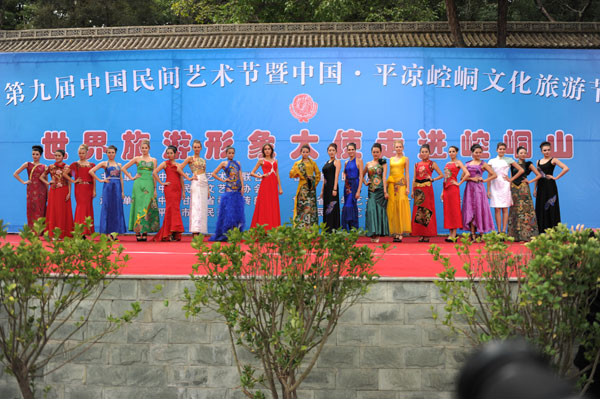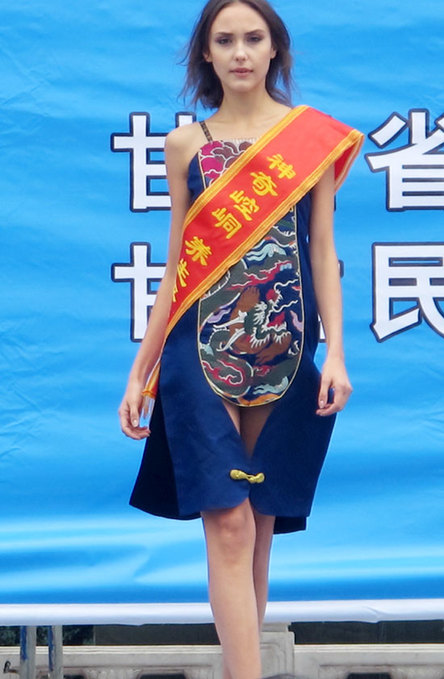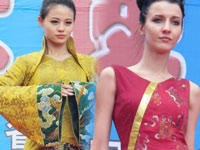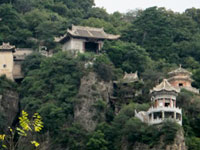Fashion Tourism on Kongtong Mountain
The 9th China Folk Art Festival kicked off in Pingliang, Gansu province on September 12. The festival, themed “Beautiful Kongtong Mountain”, aims to promote the Chinese folk art exhibition and tourism in Pingliang.
Twenty girls representing 8 different countries and regions as world tourism image ambassadors presented a fashion show on Kongtong Mountain on the first day of the festival.
Mao Weiyang, vice-president of the Pacific Asia Travel Association, said China’s Taoist culture will present its unique charm by combining with travel culture, which also accentuates the advantage of regional culture. Differentiation is the essence of travel culture.
Pingliang is a well-known tourist destination for those traveling to the Kongtong Mountains, one of the sacred mountains of Taoism and highlighted as one of important places for health maintenance. During peak tourism months, organizers pull out all the stops, demonstrating Gansu’s own paper-cutting art, lion dancing and local snacks.
The China Folk Art Festival is the largest national folk cultural event in China and was launched in 1989. It has made great contributions to preserve Chinese folk culture and promote the development of tourism.


















